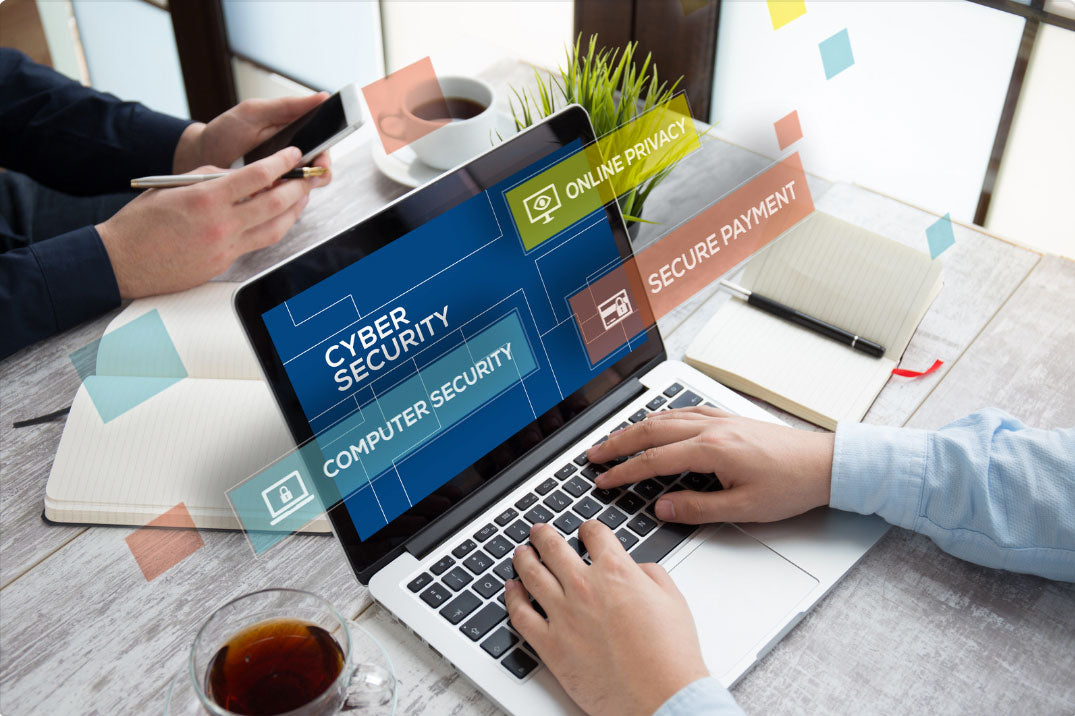Your cart is empty now.

A Small Business Owner's Guide to Purchasing Cyber Security Software
Cyber security is becoming a higher priority for most businesses, small or otherwise. But only about 28% of small businesses have the right tools to protect against attacks. So what do you need to know if you're trying to purchase cyber security software for your business? What are the ins and outs of purchasing cyber security software? That's what we're here to look at today. Read on to check out our ultimate cyber security software guide.
What Is Cyber Security Software Anyway?
Cyber security by itself refers to the methods and strategies that someone uses to protect your computer systems against cyber attacks. For small businesses, the goal of cyber security is to protect their assets and information.
Small businesses have multiple systems to store their information. As such, the best cyber security software coordinates the right protection across those systems.
Common Cyber Security Threats for Small Businesses
It's hard to understand what cyber security software does if you don't know the type of threats it's protecting you from. Let's break down some of the most common cyber security threats for small businesses in 2021.
Ransomware
One of the most common cyber security threats today is ransomware. This is when an intruder encrypts your private files and forces you to pay a ransom to get them back. Ransomware is usually implemented through a Trojan Horse, usually in the form of an email or link that someone unknowingly opens. Once downloaded, the ransomware program is downloaded onto your system.
Phishing
Another common cyberattack is phishing, which is when an intruder tries to lure a user into opening a dangerous file. They disguise themselves as trustworthy sources to fool a user into their trap.
They're often claiming that you've won a prize or masquerade as the government in order to get you to click. Both individuals and entire companies are susceptible to phishing.
Individual Mistakes
Of course, cyber security isn't just about protecting your small business from malicious strategies. Sometimes your employees might show negligence when protecting your firm's information.
Some might be fooled into thinking a phishing email is from their boss, or they might not use a protected network to share information. They might not encrypt their files or choose not to use two-factor authentication.
All of these individual mistakes can cause data breaches or create openings for intruders to get into your network. Cyber security programs help reduce all of these risks. Let's look at how they do so in the next section.
Components of a Cyber Security Program
You first need to put up defenses for all the services and software in your organization. To do so, you need things like strong application architecture, well-written code, sufficient threat modeling, and so on.
Authentication and proper authorization is another crucial component of a cyber security program. Being able to identify the right users is crucial to protecting private information.
If you have a cyber security program in place, you should also implement a disaster plan in case things do go wrong. This reduces the damage control your business will undergo when a breach occurs.
Finally, ensuring security for mobile devices and having cloud capabilities are also important when considering cyber security programs. If you're looking for solid cyber security packages, check out this link here.
Picking the Right Cyber Security Software
When it comes to purchasing the right cyber security software, don't just pick them arbitrarily. There are a few things you should consider if you're looking for the right cyber security package.
Performance Over Everything
Cyber security software providers will market themselves as positively as possible, but don't be immediately fooled by their words. If you're investing in software, you need the most reliable performance possible. Make sure you're looking at how well cyber security software performs in the event of an attack. Finding independent test results might require some research, but is well worth it when investing in cyber security software.
More Than Once Service
Like we've established in previous sections, cyber security is a multifaceted topic for small businesses. When a software provider says they're especially good at one aspect of cyber security, approach it with caution. This is because if they're only really good at malware protection but can't deal with ransomware as well, it might be detrimental for your business. Find software that can adequately handle all kinds of cyber attacks instead.
Technical Support
Even after installing cyber security software, you're bound to come across a few roadblocks. It might be as simple as not knowing how to activate service or as detrimental as the software failing to launch. For these instances, you'll need top-notch technical support from the software provider. Having access to tech support and the right resources is vital if you want to maintain your cyber security software's integrity.
Marketing
As a small business, marketing is always part of your organizational efforts. This includes cyber security, and you need to convince your clients or customers that you have the right infrastructure to prevent cyber attacks. Cyber security vendors that provide resources for ensuring client security are key if you want to stay in front of your competition. The more marketing resources they provide, the better.
Finding the Best Cyber Security Software
Choosing the right cyber security software can be a daunting task if you don't know the intricacies of cyber security. Use this article to help you find the best software for your small business.
Are you in the market for purchasing cyber security? Contact us today and we'll provide the right solution for your business!

